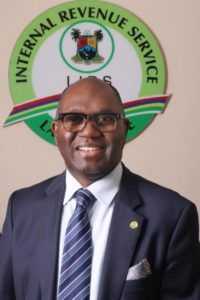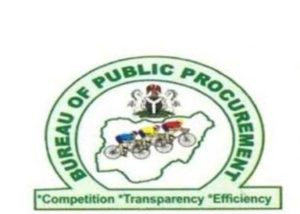
There are many opportunities for investment in Nigeria beyond the oil sector, the Minister of Budget and National Planning, Senator Udoma Udo Udoma, said in Washington DC, where he attended the Spring Meeting of the IMF/World Bank.
While in Washington DC, the Minister had discussions with senior staff of the Fiscal Affairs Department of the International Monetary Fund (IMF) on technical assistance on budget issues, particularly on forecasting, policy analysis and expenditure management. He also met with officials of the African Department of the Fund, where he discussed developmental issues; as well as with some investors interested in Nigeria.
The Minister also participated in some events and seminars including the presentation of the African Regional Economic Outlook; a seminar on Debt and Growth: a balancing Act; Attracting Investments in sub-Saharan Africa; Building Human Capital: A project for the world; also that on the state of the African region: leveraging innovation to transform agriculture and energy.
During the meetings and discussions, the Minister emphasised the positive growth trend of the Nigerian economy as a result of the policy initiatives in the Economic Recovery and Growth Plan (ERGP); and was pleased to note that there was general acknowledgment that Nigeria’s economy has turned the corner and was now growing again. And that whilst this turnaround has been helped by the oil price, growth is now a little more balanced.
While interacting with journalists on the sidelines of the Spring Meeting, the Minister explained that he was in Washington to market the ERGP and interact with colleagues from other countries to share experiences and also to learn from the experiences of others. He was pleased to note that one of the key messages from the presentations at this Spring Meeting of the IMF/World Bank, is general agreement that Sub-Saharan Africa, and particularly, Nigeria, was growing more positively.
He was happy to see the positive projections being made by the IMF about Nigeria. In their recent World Economic Outlook (WEO) they identified a number of positive developments in Nigeria, including the new foreign exchange measures that have contributed to better Forex availability and macro-economic stability; as well as the implementation of various initiatives outlined in the ERGP. He added however, that in spite of these positive developments, we still have more work to do as “we cannot afford to relax until we achieve our national growth target of 7% by 2020”.
Senator Udoma said that judging from the series of meetings he has been having with private investors, it was evident that investors are interested in Nigeria. “Many of the investors I have met have shown interest in the investment opportunities we are creating through the initiatives and reforms in the ERGP and are desirous of coming to explore them.”
Explaining the basis of their enthusiasm, the Minister said: “They have seen that this is the right time to come to Nigeria. They have seen how committed Government is towards improving the business environment, in removing constraints to investments, in diversifying the economy, and in partnering with the private sector on infrastructure development.
“They have seen that most of our macro-indices are turning positive including a consistent decline in inflation from 18.72% in January 2017 to 13.34% by March 2018; and the sustained rise in Foreign Reserves from $24 billion in September 2016 to about $47 billion by early April 2018”.
The Minister said the good news is that the economy is not just growing, but the growth is a little more broad-based. “In other words, Nigeria’s growth is not only a reflection of the performance of the oil sector but also driven by growth in the non-oil sectors. All the key non-oil sectors (Agriculture, Industry, Solid Minerals, Building and Construction, etc.) experienced positive growth as shown by the numbers released by the NBS for the 4th quarter of 2017,” he emphasised.
Addressing the concerns raised by some commentators about the high level of the country’s debt service to revenue ratio, the Minister explained that a number of measures are being taken to shore up revenues, including tax reforms and blocking of leakages. Such reforms include the review of excise duties on alcohol and tobacco and the tax amnesty/VAIDs initiative among others.
From the various presentations made by the leadership of the IMF/World Bank, the overall global outlook for 2018 and 2019 is very positive. While global growth is projected to rise to 3.9% in both 2018 and 2019, growth in emerging and developing countries is expected to increase from 4.8% in 2017 to 4.9% in 2018 and 5.1% in 2019. In Sub-Saharan Africa, growth is projected to strengthen from 2.8% in 2017 to 3.4% in 2018 and 3.7% in 2019, as the challenging outlook in commodity exporters gradually improves.
Nigeria, in particular, is projected by the IMF in the recent WEO to grow by 2.1% in 2018, with a dip to 1.9% in 2019. Although these are below our national targets, the new forecast is 0.2 percentage point stronger in each year relative to the October WEO forecast and higher than the prospects for other sub-Sahara African countries.



